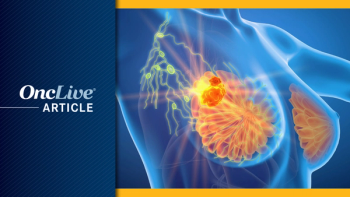
AHRQ Report Says Evaluating Survivorship Programs Difficult Because of 'Idiosyncrasies'
Efforts to evaluate cancer survivorship programs are a daunting task according to a technical brief issued by the Agency for Healthcare Research and Quality.
Efforts to evaluate cancer survivorship programs are a daunting task according to a technical brief issued by the Agency for Healthcare Research and Quality (AHRQ). The agency’s findings suggest that models of survivorship care are idiosyncratic or individualized to the institution or organization where they are based. Other factors affecting the ability to evaluate these programs include the type of relationship between the provider and survivor, the location of where the care was delivered, the cancer type and treatment, and the survivor’s risks associated with the disease.
The report says there is a gap in the survivorship care knowledge base that needs to be addressed in order to develop and evaluate care models. In addition, current reimbursement rules may make new care models less appealing.
As of January 2012, the United States had nearly 14 million cancer survivors, with 59% ages 65 years or older. The number of survivors is projected to grow to 18 million by 2022. Survivors (i.e., patients who have completed active treatment) have unique physical, psychological, social, and spiritual health needs. Even as the oncology workforce is projected to experience substantial shortages, the number and needs of cancer survivors is projected to increase.
Cancer survivors have unique post-treatment needs, as these individuals may have higher risks of recurrence and secondary cancers; chronic or late-occurring effects of cancer or cancer treatment; comorbid conditions that may have been exacerbated by cancer treatment; and increased likelihood of preventable morbidity and mortality that can be reduced by health promotion activities. These unique needs highlight the importance of care programs specifically tailored for cancer survivors.
Developing appropriate health care programs that provide needed supports and enhance relevant outcomes for individuals with cancer following completion of acute (i.e., potentially curative) cancer treatment can be difficult.
Current cancer survivorship care often involves medical oncologists or other oncology health care providers following survivors for prolonged periods after treatment ends. Such a model may or may not represent the preferred approach for cancer survivors or for oncologists. Challenges to optimal care for cancer survivors (however “optimal” is defined) may include differing perspectives, lack of communication, or lack of clear expectations among PCPs and oncologists on their roles and responsibilities in delivering survivorship care.
A copy of the technical brief is available



































